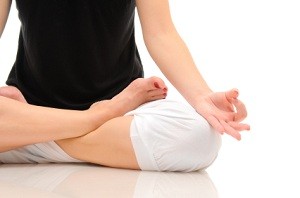
Burnout, the feeling of being emotionally, physically and psychologically depleted, may pose a real risk, particularly to overachieving types with unrealistic goals, or people in the helping professions-medicine, teaching, social services etc.
Imbalance is usually at the heart of burnout. Sufferers typically make unreasonable investments of time, commitment and focus on career to the detriment of their personal lives and development. Problems on the job can exacerbate matters. A lack of autonomy or control, the inability to make decisions, an abusive boss or difficult colleagues, too much work and too many hours spent working or a tedious unvarying routine may all be contributing to the accumulation of harmful stress.
Disillusionment can be a precipitating factor.
There are other influences to consider as well.
“Stressors can be internal, for example, illness, poor diet, lack of sleep, smoking, excessive alcohol, etc. or external and environmental such as overcrowding, weather, noise. Social stressors include unemployment, financial worries, relationship breakdowns. Some stress can be generated by our negative self talk,” says Catherine Madigan, of Melbourne, Australia, a clinical psychologist specializing in the treatment of anxiety disorders.
Burnout can produce a wide array of symptoms, she explains.
Sleep disturbances-difficulty falling and staying asleep and feeling unrefreshed despite hours of rest-are common. Muscle tension is typical and frequently localized to the neck, shoulders and back. Uncharacteristic cynicism and bouts of impatience and irritability can signal burnout. Other symptoms include manifestations of anxiety-sweating, shaking, nausea, diarrhea, headaches, dizziness, lightheadedness, faintness, heart palpitations, chest pain, racing heartbeat and tingling in the extremities.
Feelings of disillusionment and despair, accompanied by a total absence of joy and humor, can contribute to a generalized sense of meaninglessness, the crushing hallmark of burnout.
It’s also not unusual for job performance to decline along with professional and personal relationships as sufferers withdraw emotionally and appear indifferent to family, friends and colleagues.
“If people do not engage in stress management they may find that they end up clinically depressed or developing an anxiety disorder such as panic attacks. They may also end up abusing drugs and alcohol,” comments Madigan.
Treatment requires recognition-it’s important to acknowledge that circumstances have conspired to overwhelm you-and time. You must be willing to acknowledge your complicity in burning out and establish new parameters establishing a proper balance between your work life and your personal life. Self-regulation is paramount.
Take steps to introduce a proper diet, adequate rest and recreation and exercise into your daily life. Turn off your cellphone. Stop compulsively checking email. Take time off. Limit social engagements unconnected to pleasure. Develop interests that will increase your experience of the natural world, which can be highly restorative.
Failure to acknowledge the debilitating effects of burnout may result in physical or mental breakdown, prolonged episodes of depression or even disease.
If You’re Feeling the Heat:
Some recommendations from Catherine Madigan for preventing or treating the symptoms of burnout:
- Stress management is anti-burnout. Regular aerobic exercise is great for stress relief. Exercise can be as simple as a brisk 30-minute walk. Other options include: cycling, jogging, squash etc.
- Avoid substances, which can increase anxiety, including caffeinated drinks such as tea, coffee and soda.
- Stop smoking or cut back.
- Alcohol is a depressant, lowers your “people mood” and can actually increase your feelings of anxiety within hours of having a drink.
- Experiment with relaxation techniques such as slow breathing and progressive muscle relaxation.
Being fully engaged in all aspects of your life-and that includes time set aside to relax in a lounge chair and read a good book-will significantly reduce your risk of going down in flames.
For more articles go to http://lifesportfitness.lifestyleezine.com

 Stress management is an important practice that most people nowadays need to learn. With a fast paced working environment, people are constantly subjected to tremendous pressure that results in unpleasant levels of stress in their lives. You need to be able to cope quickly with the amount of stress that you have to deal with since it produces several negative effects on your health. Exercise is a great way to relieve stress and there are so many options out there that everyone can find an activity that they enjoy doing but will also de-stress the body and mind.
Stress management is an important practice that most people nowadays need to learn. With a fast paced working environment, people are constantly subjected to tremendous pressure that results in unpleasant levels of stress in their lives. You need to be able to cope quickly with the amount of stress that you have to deal with since it produces several negative effects on your health. Exercise is a great way to relieve stress and there are so many options out there that everyone can find an activity that they enjoy doing but will also de-stress the body and mind.